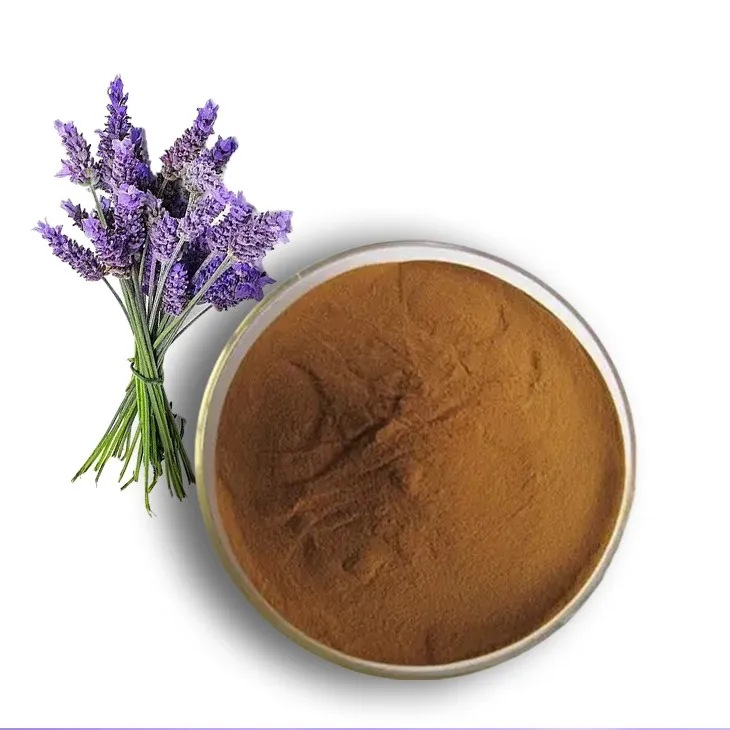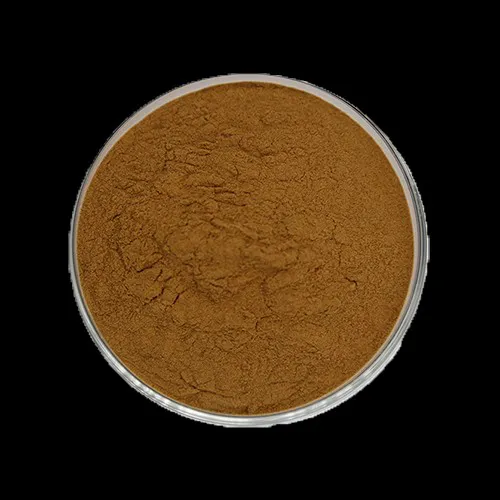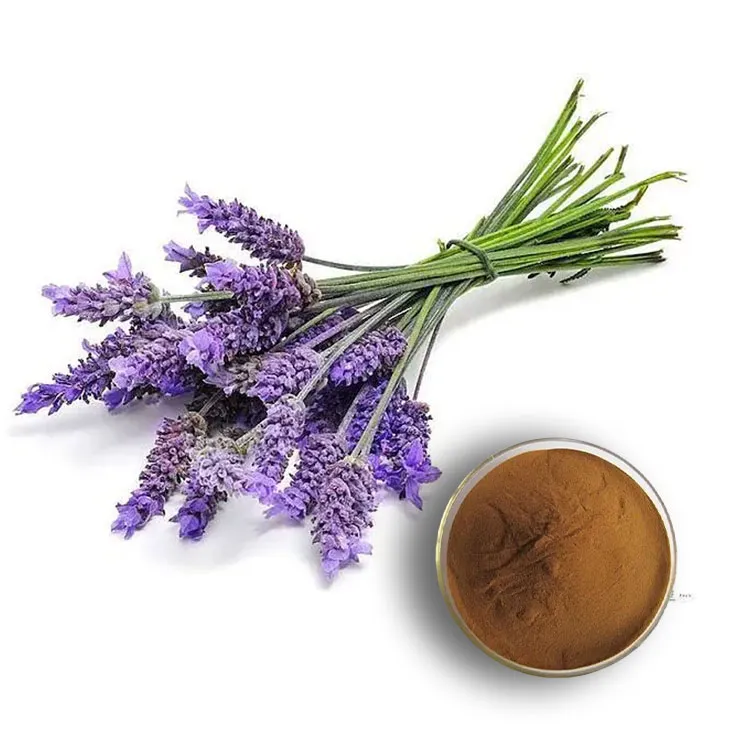- 0086-571-85302990
- sales@greenskybio.com
A Guide to Understanding the Proportion of Lavender Extract Powder.
2024-12-10

1. Introduction
Lavender Extract powder has gained significant popularity in recent years due to its diverse applications. It is derived from the lavender plant, which is known for its pleasant aroma and various beneficial properties. Understanding the proportion of Lavender Extract powder is crucial as it directly impacts its effectiveness in different applications. Whether it is in cosmetics, aromatherapy, or food, the right proportion can make a world of difference.

2. Applications of Lavender Extract Powder
2.1 Cosmetics
In the field of cosmetics, lavender extract powder is used for a variety of purposes. Skin care products often contain lavender extract powder. For example, in moisturizers, the proportion of lavender extract powder can range from 0.5% to 3%. This relatively small proportion is enough to provide several benefits. It can help soothe irritated skin, reduce redness, and has anti - inflammatory properties. In facial masks, the proportion may be slightly higher, around 3% - 5%, as it is expected to have a more intense effect on the skin. Lavender extract powder also finds its way into hair care products. In shampoos and conditioners, a proportion of about 1% - 2% can add a pleasant fragrance and potentially promote a healthy scalp.
2.2 Aromatherapy
Aromatherapy is another area where lavender extract powder plays a vital role. When used in diffusers, the proportion of lavender extract powder to the carrier oil or water can vary. For a mild and relaxing effect, a proportion of 1 - 2 grams of lavender extract powder per 100 milliliters of carrier oil or water is often sufficient. However, for a more intense aromatherapy session, the proportion can be increased to 3 - 5 grams per 100 milliliters. The aroma of lavender is known to reduce stress, anxiety, and promote better sleep. In inhalers, the proportion needs to be carefully adjusted to ensure a safe and effective inhalation experience.
2.3 Food
Lavender extract powder is also making its mark in the food industry. In baking, for instance, a very small proportion, typically around 0.1% - 0.3% of the total flour weight, can add a unique flavor to cakes, cookies, and pastries. In beverages such as herbal teas, the proportion of lavender extract powder can be around 0.2% - 0.5% per cup. However, it is important to note that in food applications, strict regulations govern the use of lavender extract powder to ensure safety and proper labeling.

3. Factors Influencing the Proportion Determination
3.1 Desired Effect
The primary factor influencing the proportion of lavender extract powder is the desired effect. As mentioned earlier, in cosmetics, if the goal is to have a strong anti - inflammatory effect on the skin, a higher proportion may be required. In aromatherapy, if the aim is to quickly relieve stress, a more concentrated proportion of lavender extract powder in the diffuser blend may be necessary. In food, if a more pronounced lavender flavor is desired, the proportion can be adjusted upwards within the allowable limits.
3.2 Product Stability
Product stability is another crucial factor. In cosmetics, for example, a high proportion of lavender extract powder may affect the stability of the product. It could lead to changes in texture, color, or even cause separation. Therefore, formulators need to find the right balance to ensure that the product remains stable over its shelf life. In food products, too high a proportion of lavender extract powder may interact with other ingredients and cause spoilage or off - flavors.
3.3 Safety Considerations
Safety is of utmost importance when determining the proportion of lavender extract powder. In cosmetics, some people may be allergic to lavender, so the proportion needs to be kept low enough to minimize the risk of an allergic reaction. In aromatherapy, excessive inhalation of a high - concentration of lavender extract powder may cause irritation to the respiratory system. In food, the proportion must comply with food safety regulations to avoid any potential harm to consumers.

4. How to Determine the Optimal Proportion
Determining the optimal proportion of lavender extract powder requires a multi - step approach.
-
Research and Benchmarking: First, research existing products in the market that are similar to the one you are formulating. Analyze the proportion of lavender extract powder they use and the effects they claim to achieve. This can serve as a starting point for your own formulation.
-
Testing on a Small Scale: Conduct small - scale tests with different proportions of lavender extract powder. In cosmetics, this could involve making small batches of creams or lotions with varying proportions and testing them on a small group of volunteers for skin compatibility, efficacy, and overall acceptability. In aromatherapy, test different blends in a small diffuser and observe the intensity of the aroma and the relaxation effects on a few individuals. In food, make small samples of baked goods or beverages with different proportions of lavender extract powder and conduct taste tests.
-
Data Analysis and Adjustment: Analyze the data collected from the small - scale tests. Look for trends such as the proportion that provides the best results in terms of the desired effect, while also maintaining product stability and safety. Based on this analysis, adjust the proportion as needed for the final product formulation.
5. Conclusion
In conclusion, understanding the proportion of lavender extract powder is essential for its successful application in cosmetics, aromatherapy, and food. The proportion is influenced by factors such as the desired effect, product stability, and safety considerations. By following a methodical approach to determine the optimal proportion, manufacturers and users can ensure that they are getting the most out of this versatile ingredient. Whether it is to create a luxurious skin care product, a relaxing aromatherapy session, or a delicious lavender - flavored food item, the right proportion of lavender extract powder is the key to achieving the desired results.
FAQ:
What are the common applications of lavender extract powder?
Lavender extract powder is commonly used in cosmetics for its potential skin - soothing and anti - inflammatory properties. In aromatherapy, it is used to create a relaxing and calming atmosphere. In the food industry, it can be used as a flavoring agent in certain products.
How does the proportion of lavender extract powder affect its application in cosmetics?
In cosmetics, the proportion of lavender extract powder is crucial. A higher proportion may provide stronger anti - inflammatory effects but could also potentially cause skin irritation in some individuals if not formulated correctly. A lower proportion may not be as effective in achieving the desired skin - soothing or anti - aging effects. The right proportion needs to be balanced based on the specific product goals and the compatibility with other ingredients.
What factors influence the determination of the proportion of lavender extract powder in aromatherapy?
In aromatherapy, factors such as the intended effect (e.g., relaxation, stress relief, or sleep induction), the size of the area where the aroma will be dispersed, and the sensitivity of the individuals exposed to the aroma influence the proportion of lavender extract powder. For a small, enclosed space and for those with a more sensitive sense of smell, a lower proportion may be sufficient. For a larger area or a more intense effect, a higher proportion might be considered.
How is the proportion of lavender extract powder determined in the food industry?
In the food industry, the proportion of lavender extract powder is determined by factors like the type of food product, the desired flavor intensity, and regulatory limits. For example, in a delicate - flavored dessert, a very small proportion of lavender extract powder may be used to add a subtle floral note. Also, food safety regulations set limits on the amount of certain substances, including lavender extract powder, that can be added to food products.
Can the proportion of lavender extract powder vary between different product formulations?
Yes, the proportion of lavender extract powder can vary significantly between different product formulations. In a high - end anti - aging cream, a relatively high proportion may be used to maximize the potential skin - rejuvenating effects. In a mild - scented aromatherapy spray for general relaxation, a much lower proportion may be sufficient. And in a lavender - flavored tea, the proportion will be adjusted according to the desired taste and safety standards.
Related literature
- The Role of Lavender Extract in Cosmetic Formulations"
- "Aromatherapy and the Optimal Use of Lavender Extract"
- "Lavender Extract in the Food Industry: Proportion and Safety"
- ▶ Hesperidin
- ▶ citrus bioflavonoids
- ▶ plant extract
- ▶ lycopene
- ▶ Diosmin
- ▶ Grape seed extract
- ▶ Sea buckthorn Juice Powder
- ▶ Beetroot powder
- ▶ Hops Extract
- ▶ Artichoke Extract
- ▶ Reishi mushroom extract
- ▶ Astaxanthin
- ▶ Green Tea Extract
- ▶ Curcumin Extract
- ▶ Horse Chestnut Extract
- ▶ Other Problems
- ▶ Boswellia Serrata Extract
- ▶ Resveratrol Extract
- ▶ Marigold Extract
- ▶ Grape Leaf Extract
- ▶ blog3
- ▶ blog4
- ▶ blog5
-
Shikone Extract
2024-12-10
-
Moringa powder
2024-12-10
-
Tinospora cordifolia extract
2024-12-10
-
Mangosteen extract powder
2024-12-10
-
Apricot Powder
2024-12-10
-
Konjac Powder
2024-12-10
-
Ginger Extract
2024-12-10
-
Kelp Extract Powder
2024-12-10
-
Bayberry Extract
2024-12-10
-
Sea buckthorn Juice Powder
2024-12-10





















